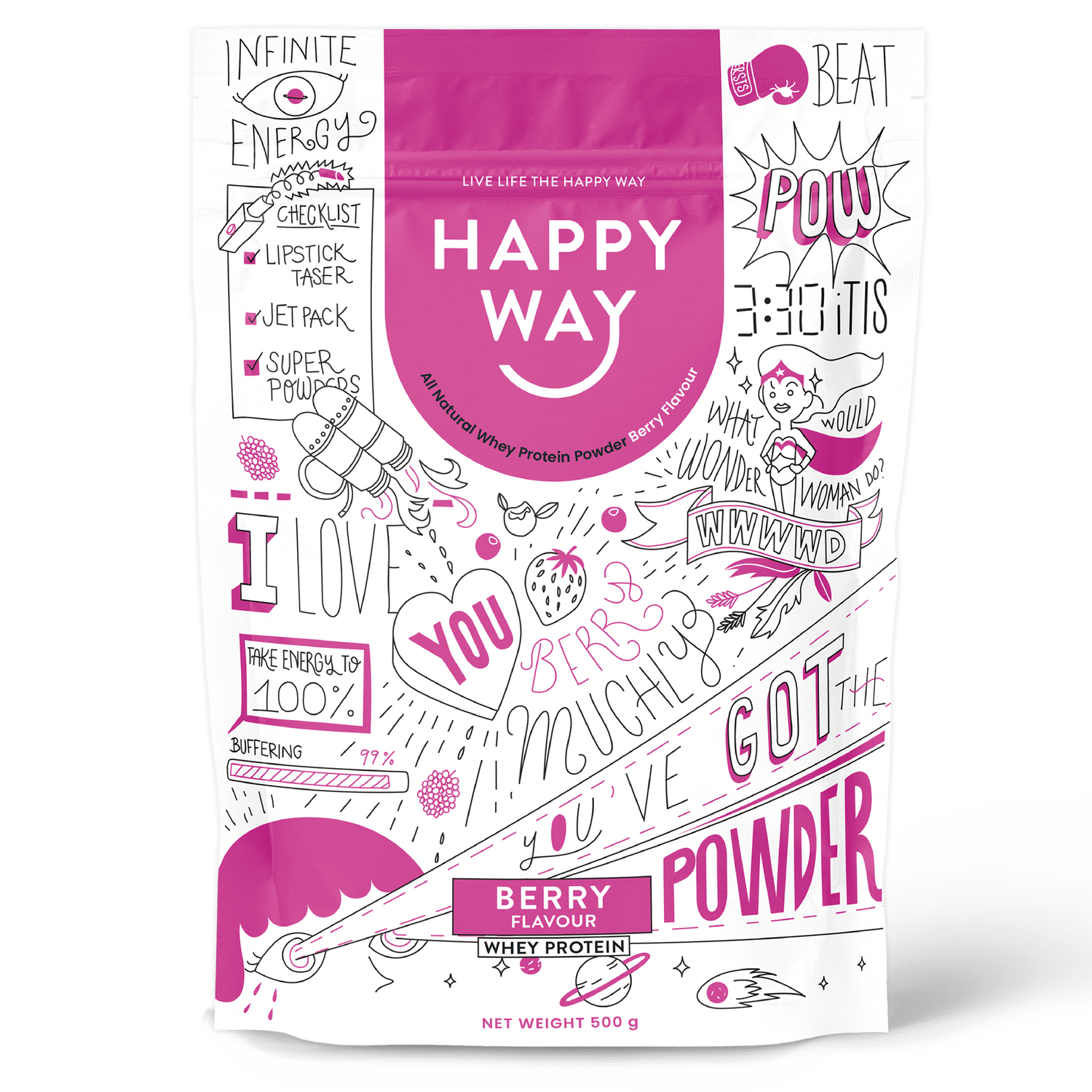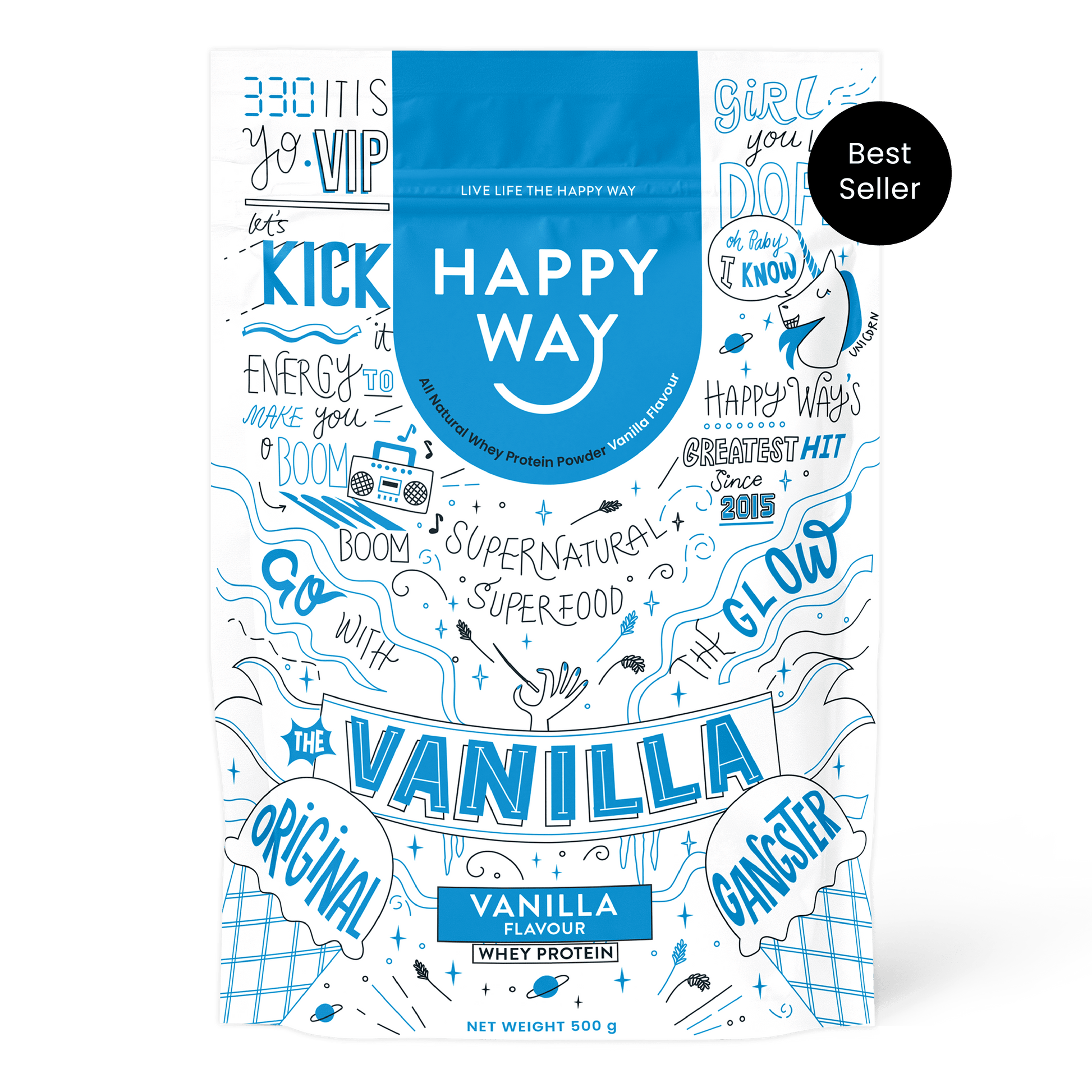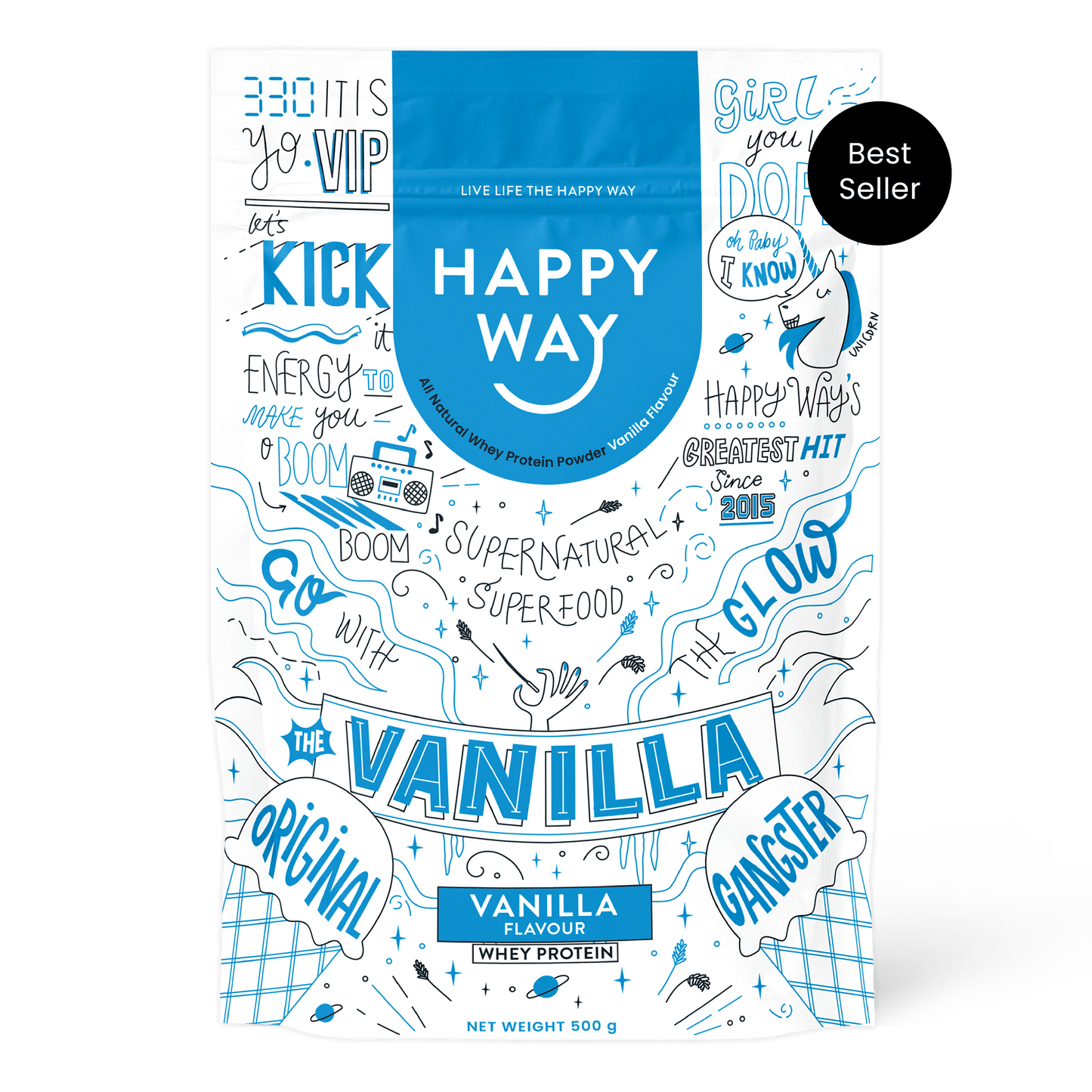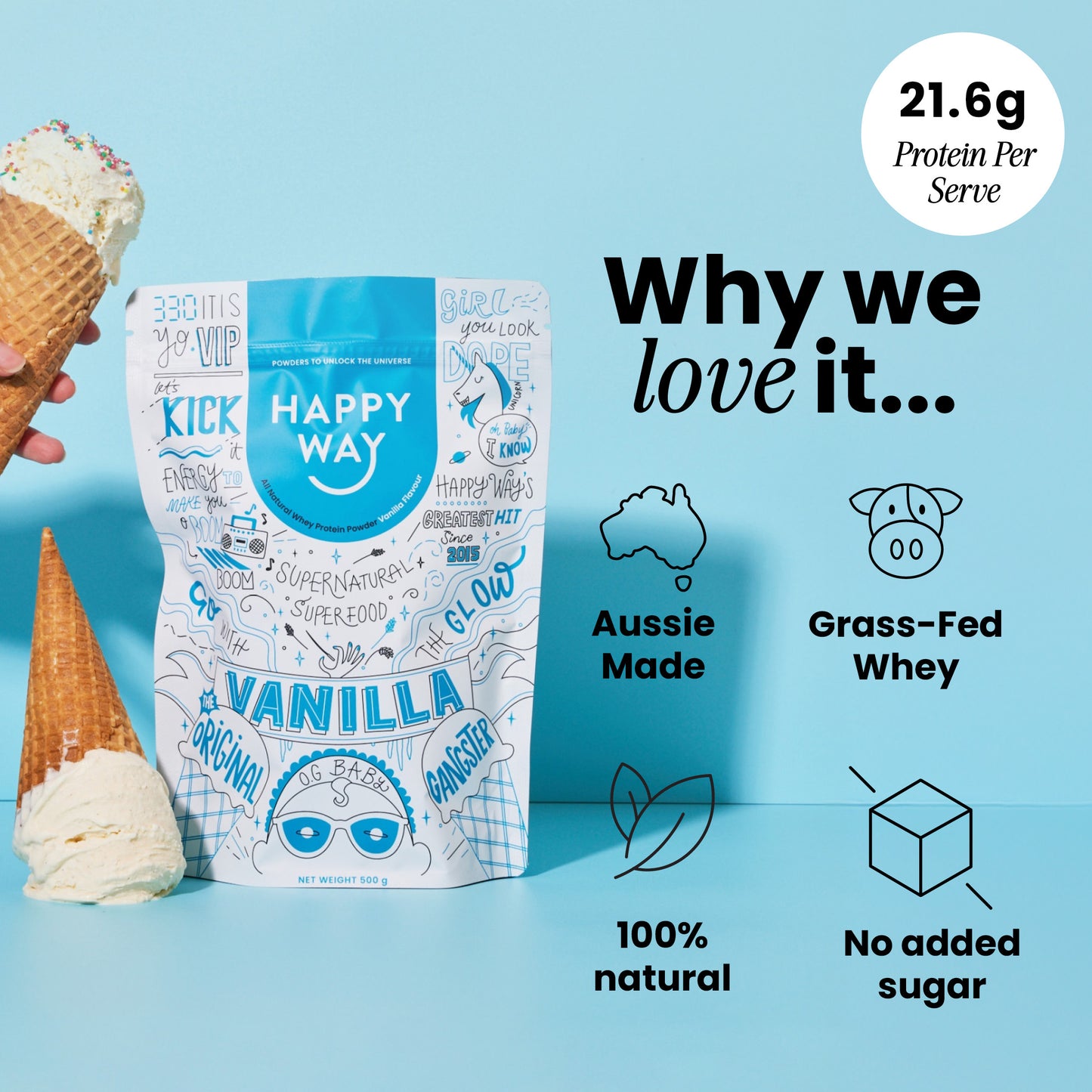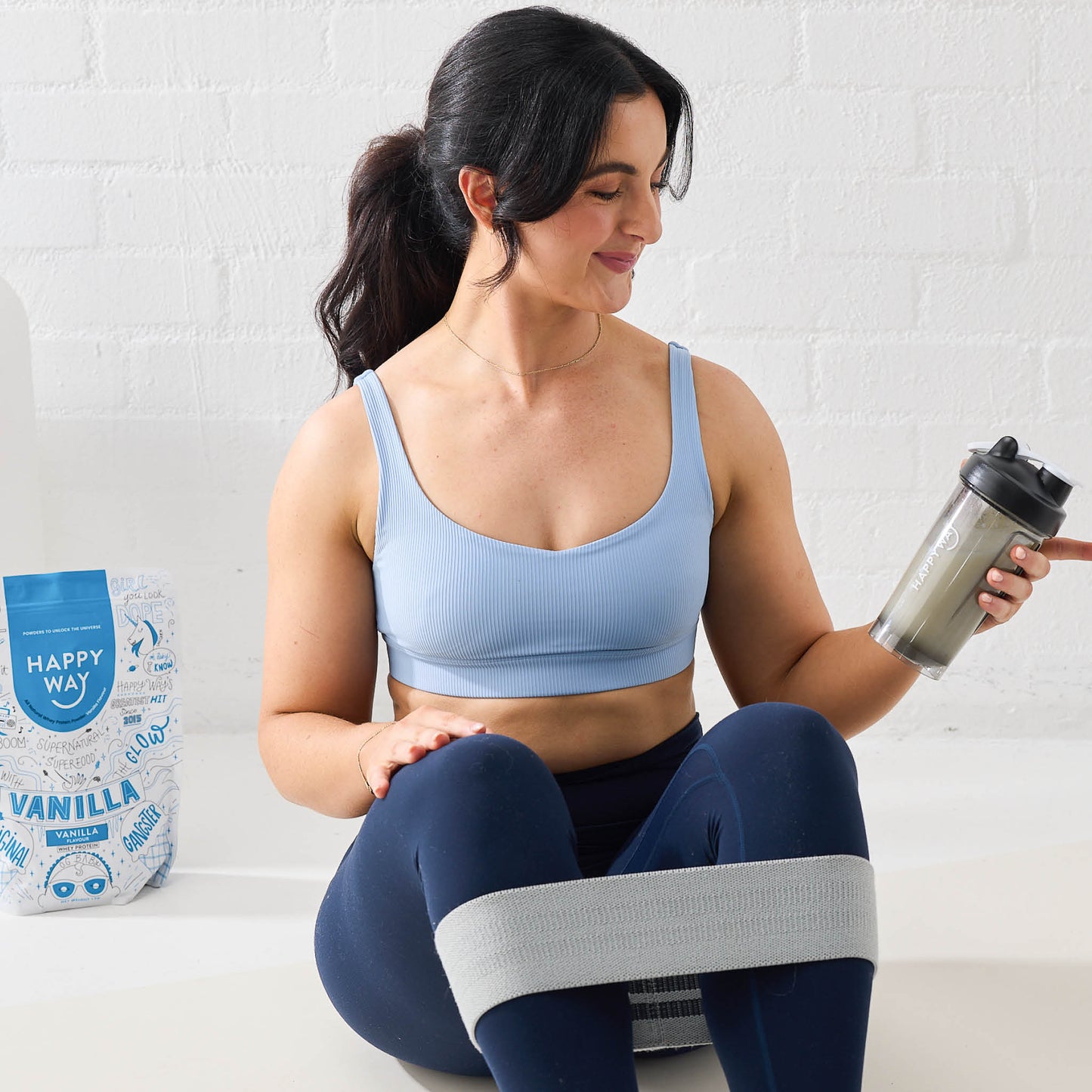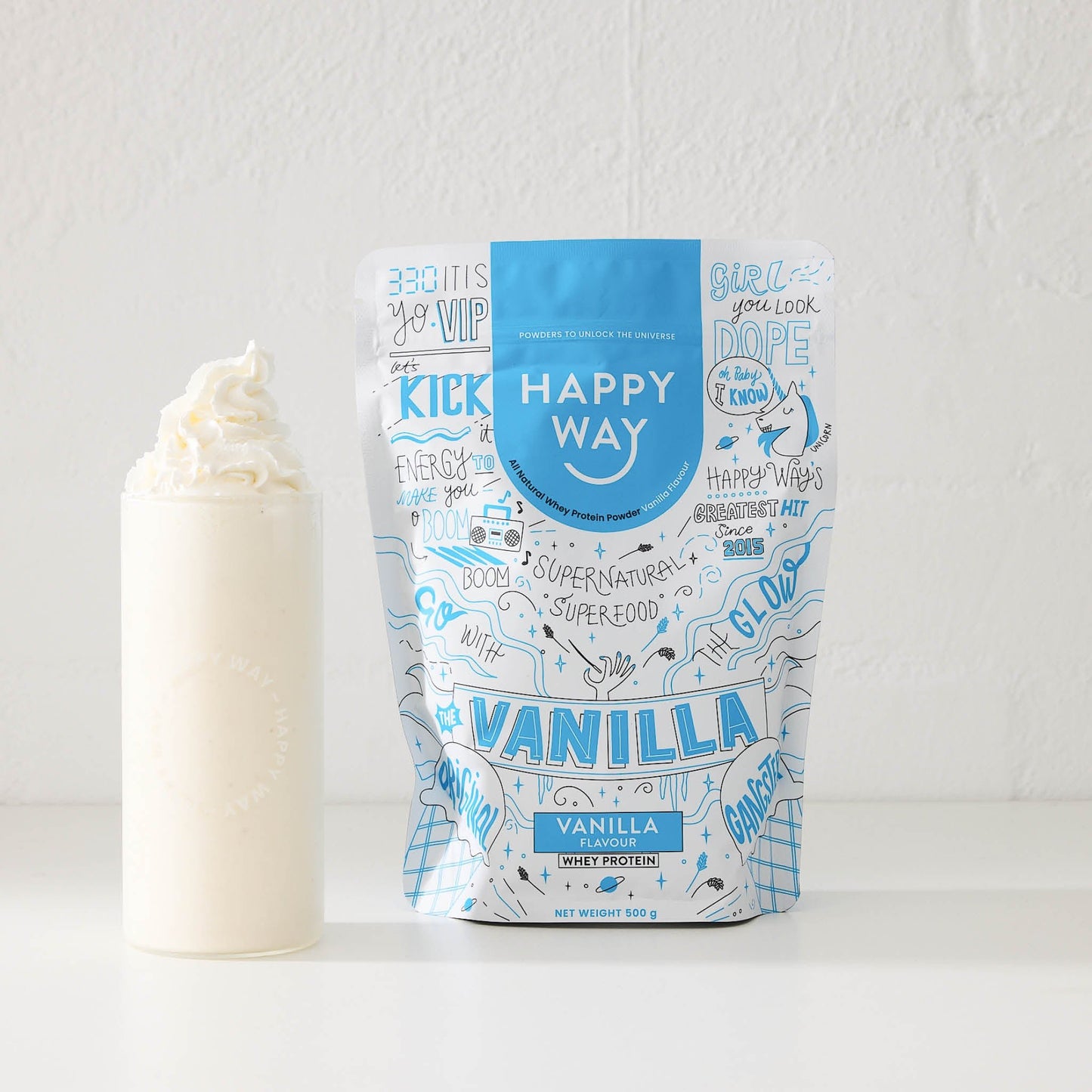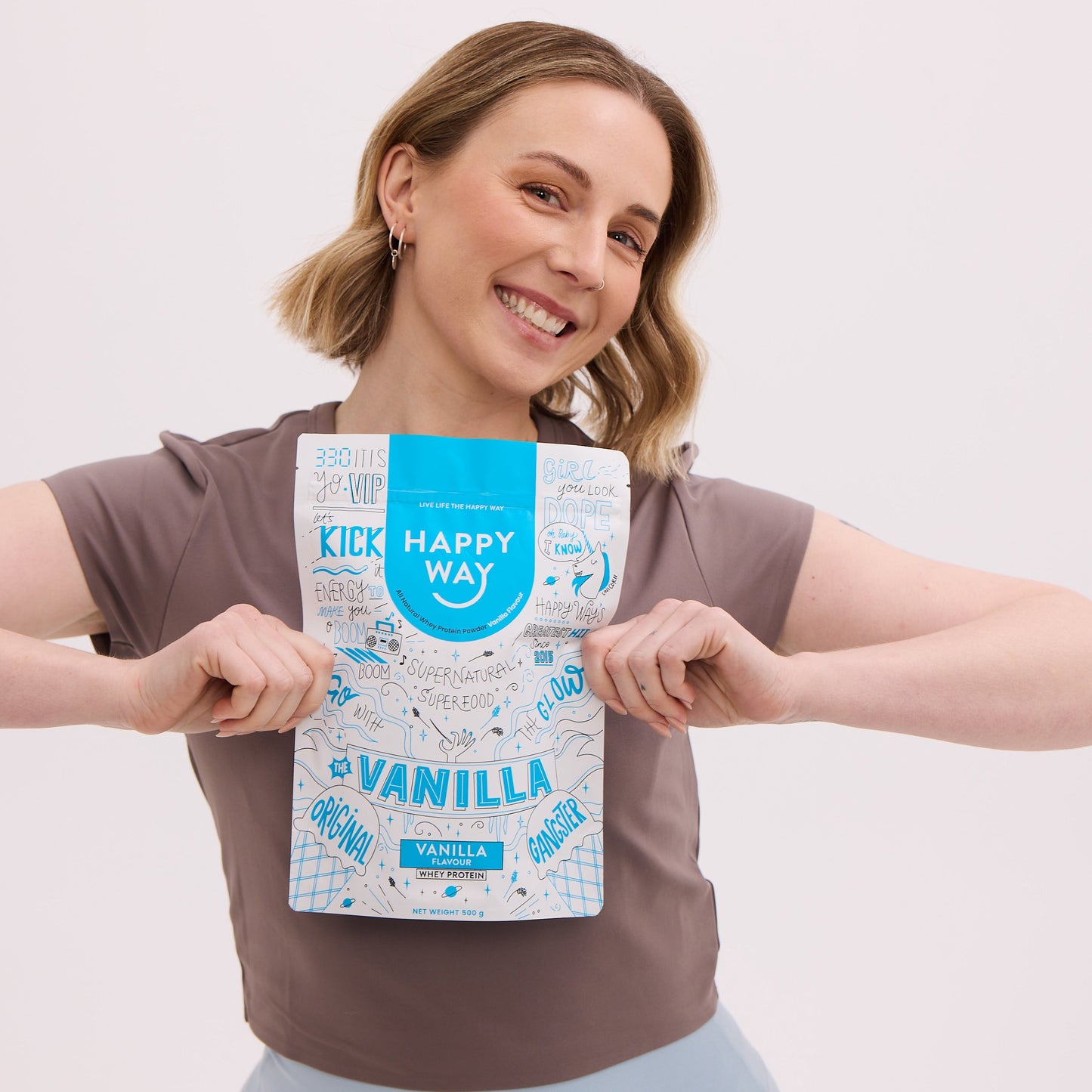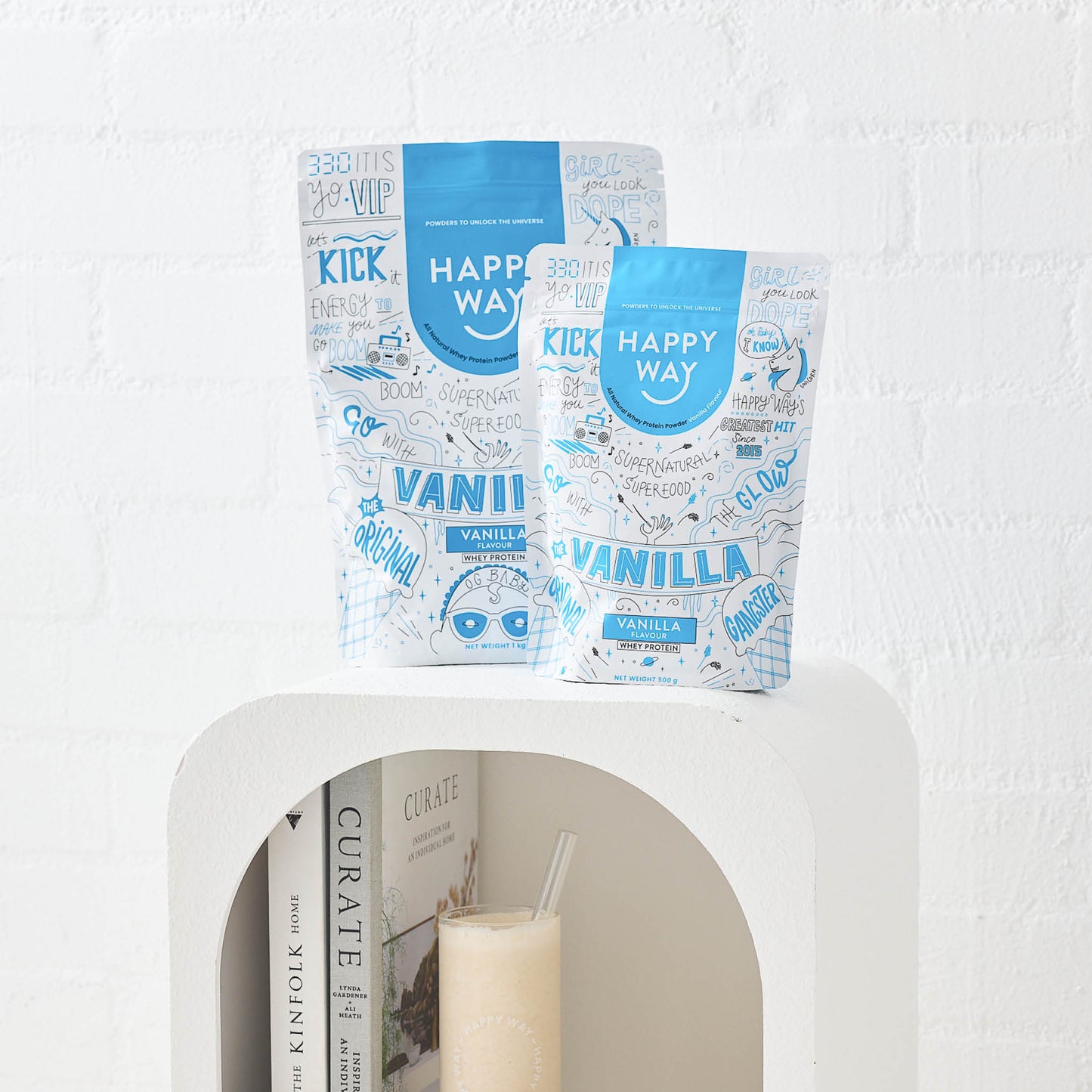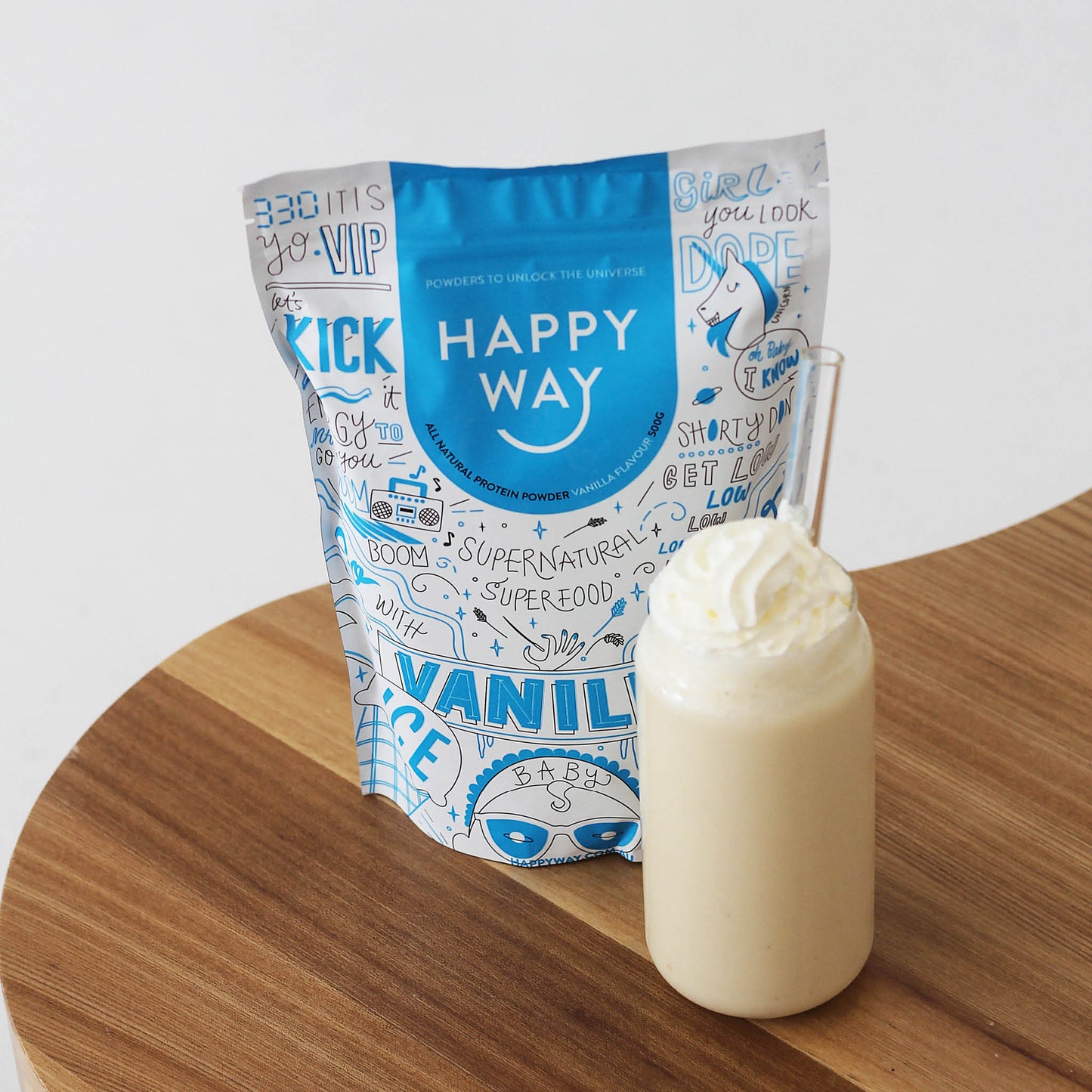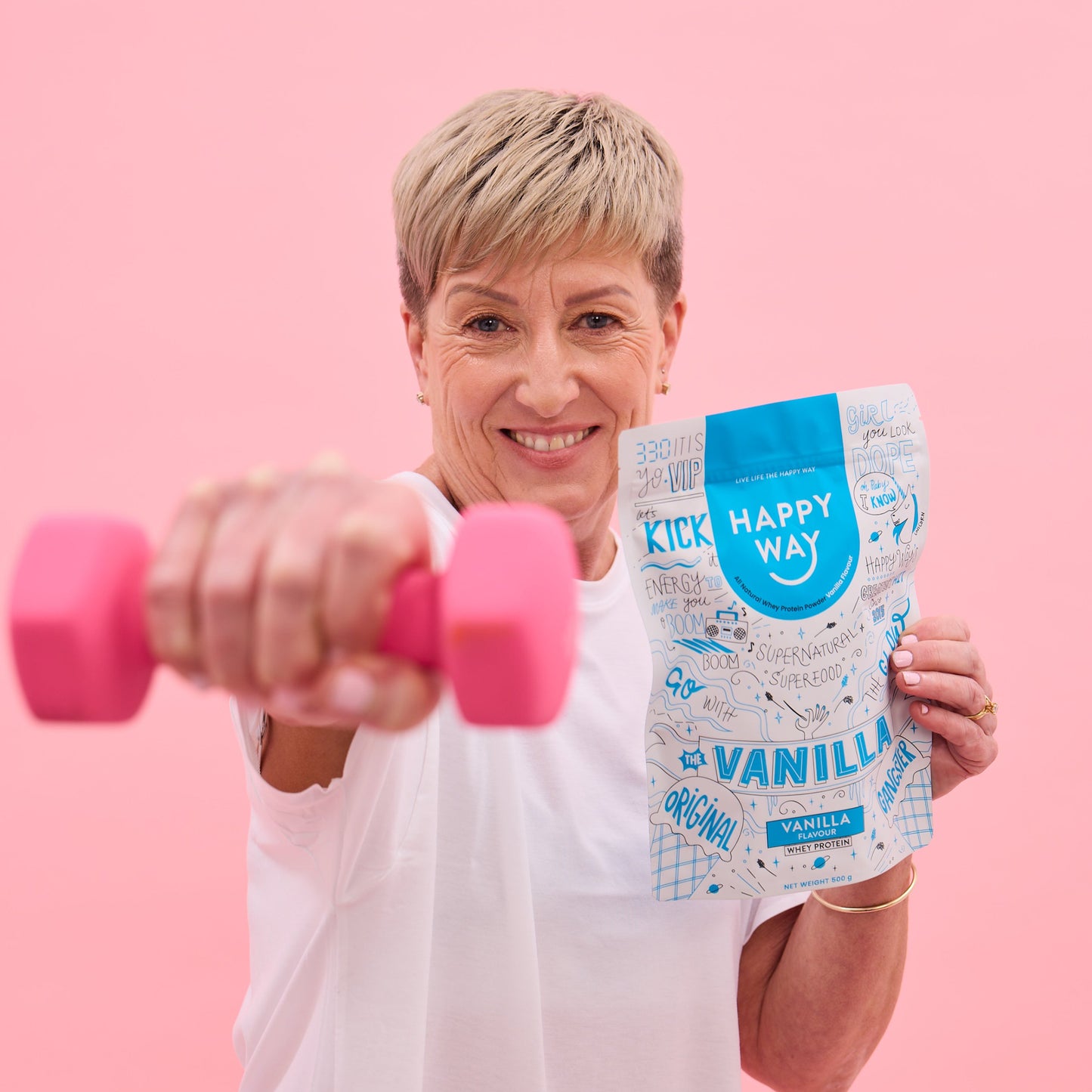Whether you’re just starting out on your fitness journey or a workout warrior, you’ve no doubt heard about whey protein powders as a health food supplement and the benefits they can provide to both the mind and body. But did you know that there are several types of whey protein, with the two most popular being whey protein concentrate and whey protein isolate? Yep! Just to add another dimension to the already overwhelming at times supplement market, there are multiple forms of whey protein powder, with each providing slightly varied nutritional value.
Your reason for using protein powders may be to boost energy and performance, build muscle and support recovery, lose body fat, or simply to get an additional dose of vitamins, minerals and nutrients by adding protein powder to your daily diet. Whatever the reason, whey protein concentrate provides all of this and more, and is a great choice for those who aren’t allergic to dairy, aren’t lactose intolerant, or are not following a vegan-friendly diet. Made from cow’s milk, whey protein is a rich source of protein and considered a complete protein being that it contains all of the essential amino acids needed by the body to be in optimal health.
So, what’s the difference exactly between whey concentrate vs isolate?
In this blog, you’ll discover everything you need to know to be well-equipped to make a decision about what whey protein powder is best for you. Read on to learn…
- What is whey protein?
- What is whey protein concentrate?
- What is whey protein isolate?
- Should I take whey isolate or whey protein concentrate?
- What are the benefits of whey concentrate vs isolate?
WHAT IS WHEY PROTEIN?
As mentioned earlier, whey protein is sourced from cow’s milk and is considered one of the best sources of protein available as it not only contains high-quality protein but it’s packed with essential nutrients and amino acids that are absorbed quickly by the body, providing fast benefits and supporting healthy bodily function.
Whole milk from cows is made up of approximately 20% whey and 80% casein protein (another form of protein entirely), and during the production process of turning milk into cheese, the liquid separates from the solid part (casein), with the remaining liquid being the whey.
Previously, a lot of people discarded the liquid portion because it wasn’t thought to be of value, but now, after it’s gone through further development and been broken down into a powder form, we know it’s the basis of whey protein powder. You can see the liquid whey when you open up a tub of yoghurt, and it has that watery layer sitting on top—that’s whey—and whilst both casein and whey are considered complete proteins, whey is digested quicker in the body, which is why it’s the preferred choice for athletes and those who workout.
WHAT ARE THE DIFFERENCES BETWEEN WHEY PROTEIN CONCENTRATE VS WHEY ISOLATE?
The difference between whey protein concentrate and whey protein isolate comes down to the further processing steps the liquid undergoes, following its separation from the casein, to increase its protein content. See below for further explanation.
WHAT IS WHEY PROTEIN CONCENTRATE?
Whey protein concentrate is thought to be less refined than whey protein isolate as it’s been through less processing than whey isolate. It contains high levels of quality protein, approximately 70-80%, and is also believed to have retained more of the natural nutrients which provide benefits, including boosted immunity, support with digestion etc. Whey protein concentrate does still, however, consist of relatively low levels of lactose, carbohydrates and fats (the remaining 20%), as it hasn’t gone through those extra stages of processing, and because of this, it’s thought to be the more affordable option of the two.
WHAT IS WHEY PROTEIN ISOLATE?
As mentioned, whey protein isolate has gone through more processing than whey concentrate, which is done to further reduce the amount of lactose, fat and carbohydrate content of the whey. The result of this is higher levels of protein—approximately 90% or more—and much lower levels of carbs and fats per serving. This makes whey protein isolate a good choice for someone who has intolerance to lactose but yet still wants to use a dairy-based protein powder, as it can be considered easier to digest. However, it should be mentioned that both varieties of whey protein contain relatively low levels of lactose, with whey isolate up to 1 gram and whey concentrate up to 3.5 grams, so they’re both still suitable for those with sensitivities to lactose.
WHY IS WHEY PROTEIN CONCENTRATE BETTER THAN ISOLATE?
You may be asking yourself, ‘Should I take whey isolate or whey protein concentrate?’.
You may want to consider where you are in your health and wellness journey or what your goals are, but both forms of whey provide very similar benefits when it comes to nutrition. One of the main reasons why it’s thought that whey protein concentrate is better than isolate is because of the whey protein concentrate price.
Whilst we’ve discussed that whey protein isolate goes through a longer period of processing than whey protein concentrate to achieve a higher protein content vs lower fat and carbs, it is generally a more expensive choice because of this reason. Both are considered a great source of quality protein, with only an approximate 10% difference in protein levels, and the levels of lactose are considerably low in both varieties, so choosing to add a whey protein concentrate to your diet shouldn't affect anyone with sensitivities.
Another reason why whey protein concentrate is better than isolate is that it offers excellent value for money and contains a more complete nutritional profile with a good blend of high-quality protein, amino acids (in particular BCAAs or branched-chain amino acids), fats and carbohydrates that support optimal bodily function and support your health and fitness goals. Whey protein concentrate is also known to have a better flavour and consistency than whey protein isolate, which makes it an ideal choice for smoothies, shakes and all your baked treats.
At Happy Way, our whey protein powders are made with whey protein concentrate and packed with vitamins, minerals and all the essential amino acids needed to boost and maintain optimal health and function of both the mind and body.
Check out our full range of whey protein powders here.
WHAT ARE THE HEALTH BENEFITS OF USING WHEY PROTEIN CONCENTRATE?
If you’re someone who is looking to lose weight and is perhaps monitoring your fat intake, you may think that whey protein isolate is the better choice for you. However, it should be noted that the nutritional differences between whey protein concentrate vs isolate are so small there is no strong evidence that supports the benefits of whey protein isolate over whey protein concentrate when it comes to the effectiveness they have on your body.
With that being said, whey protein concentrate is a fantastic choice for anyone who wants to up their daily intake of nutrients, improve their levels of fitness and get support during their workouts or training, without blowing the bank being that whey protein concentrate is much more affordable than whey protein isolate. Some of the benefits of whey protein concentrate include…
- Helps to build and maintain muscle
- Boosts energy, strength and endurance
- Supports muscle repair and recovery
- Assists with digestion and weight control
- Improves immunity
For a more detailed look into the benefits, flavours and how to use our whey protein powders, check out our blogs, ‘Top 10 best whey protein powders’ and ‘Best protein powder types and flavours’ and shop our range of whey protein powders made with whey protein concentrate here.
